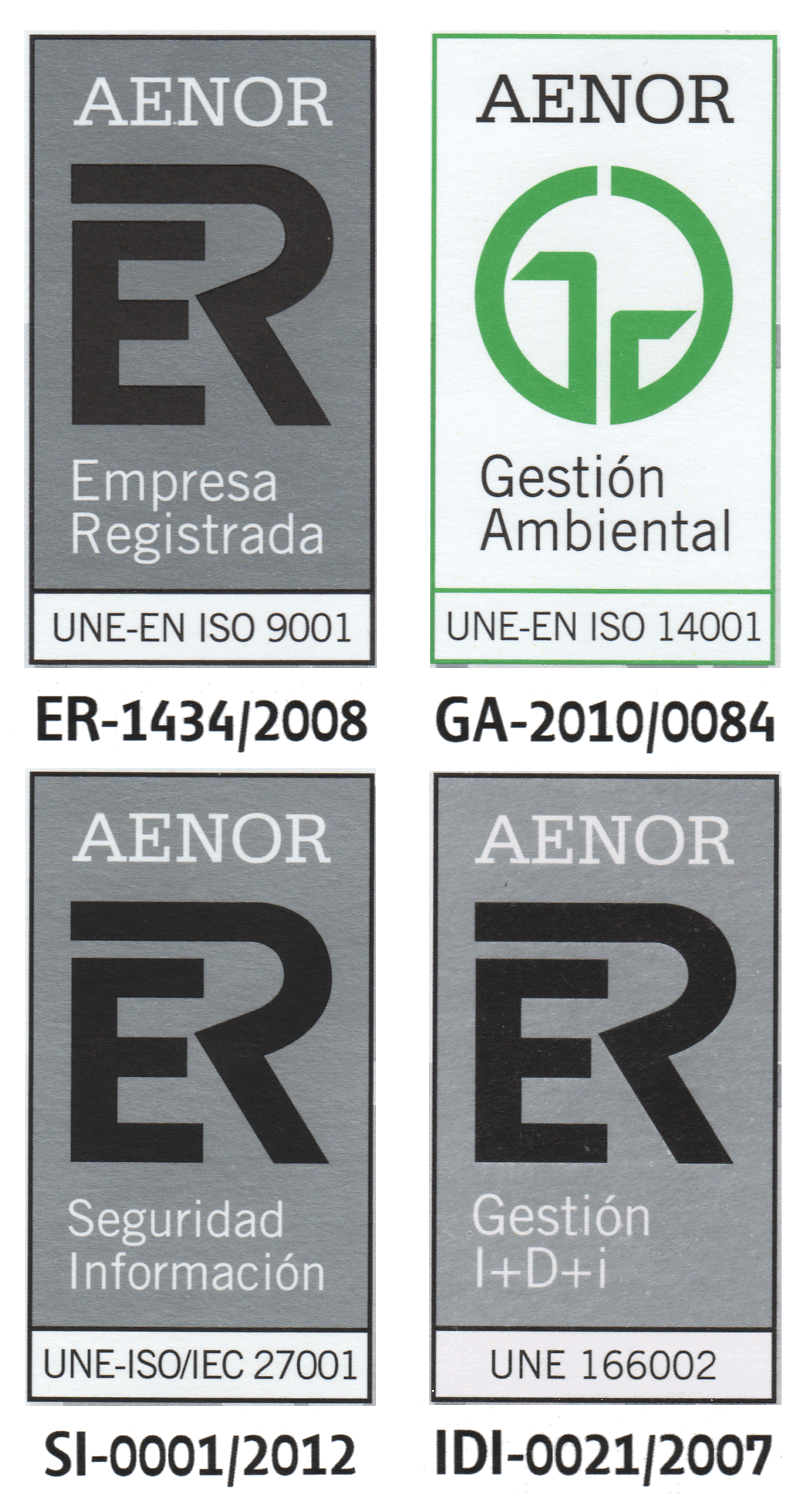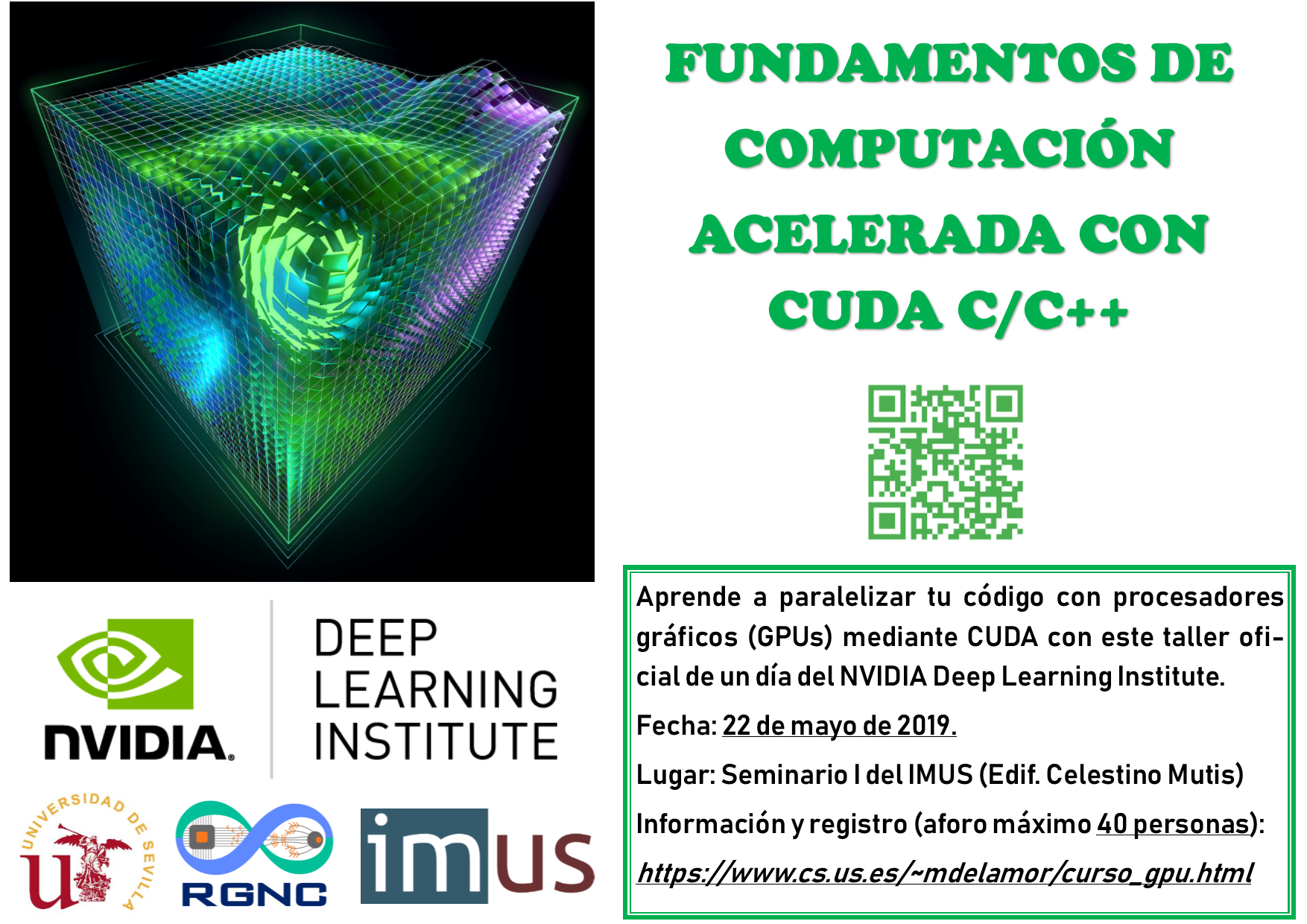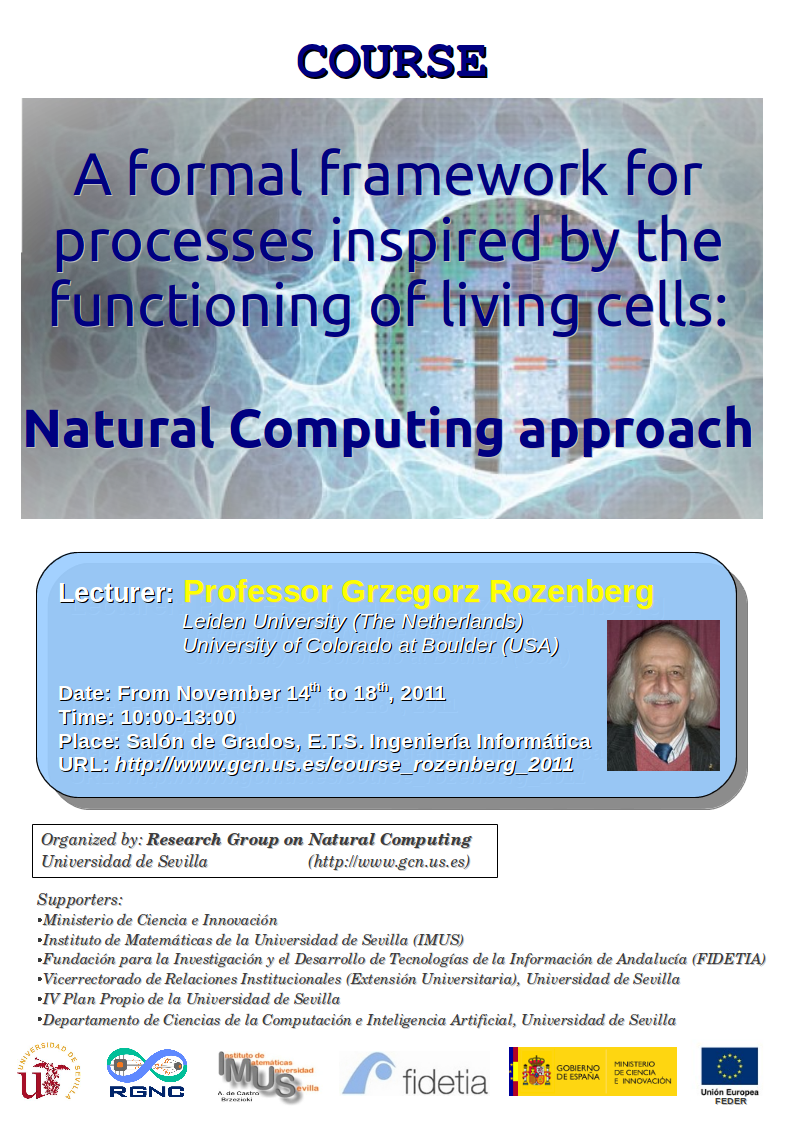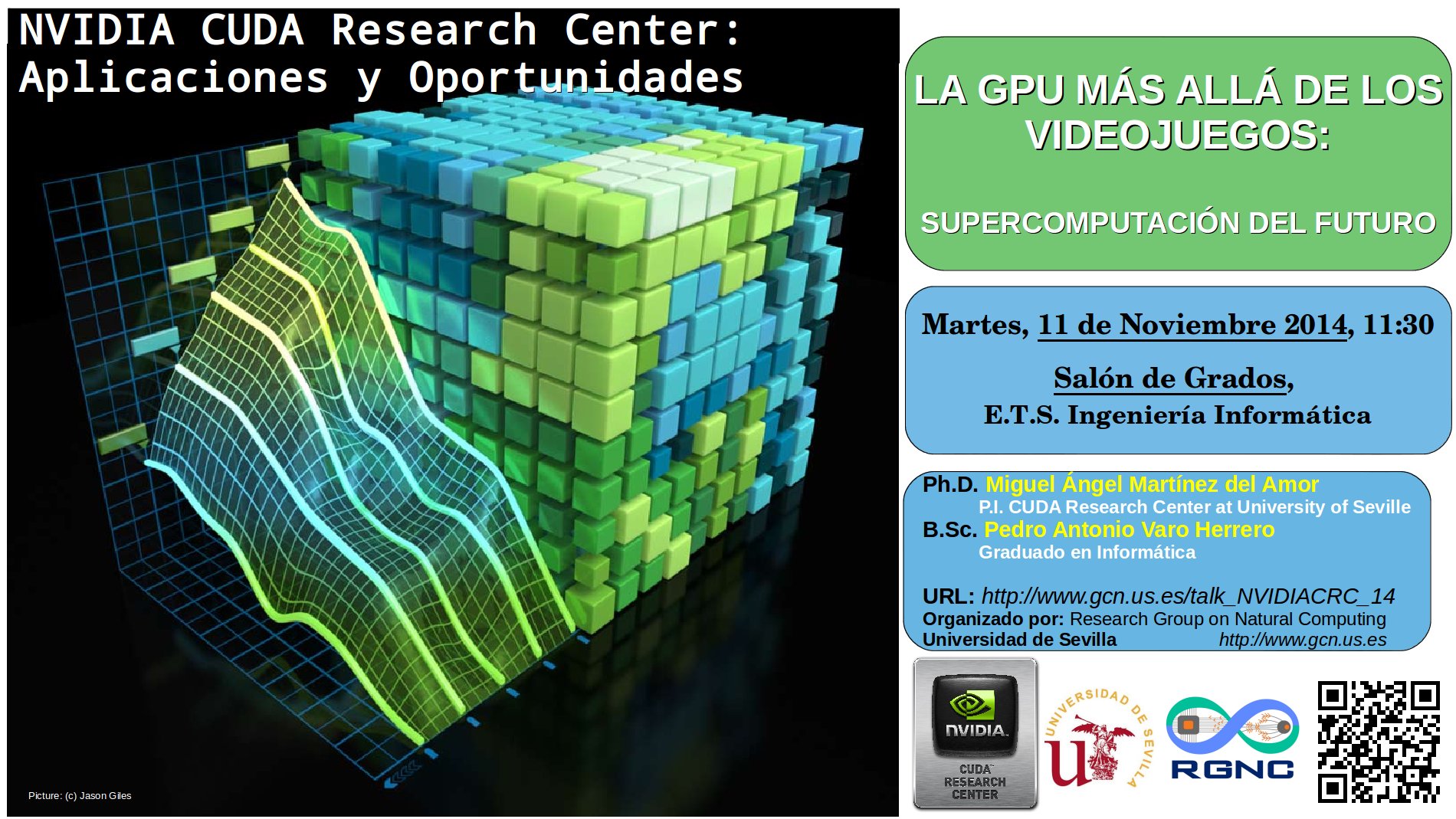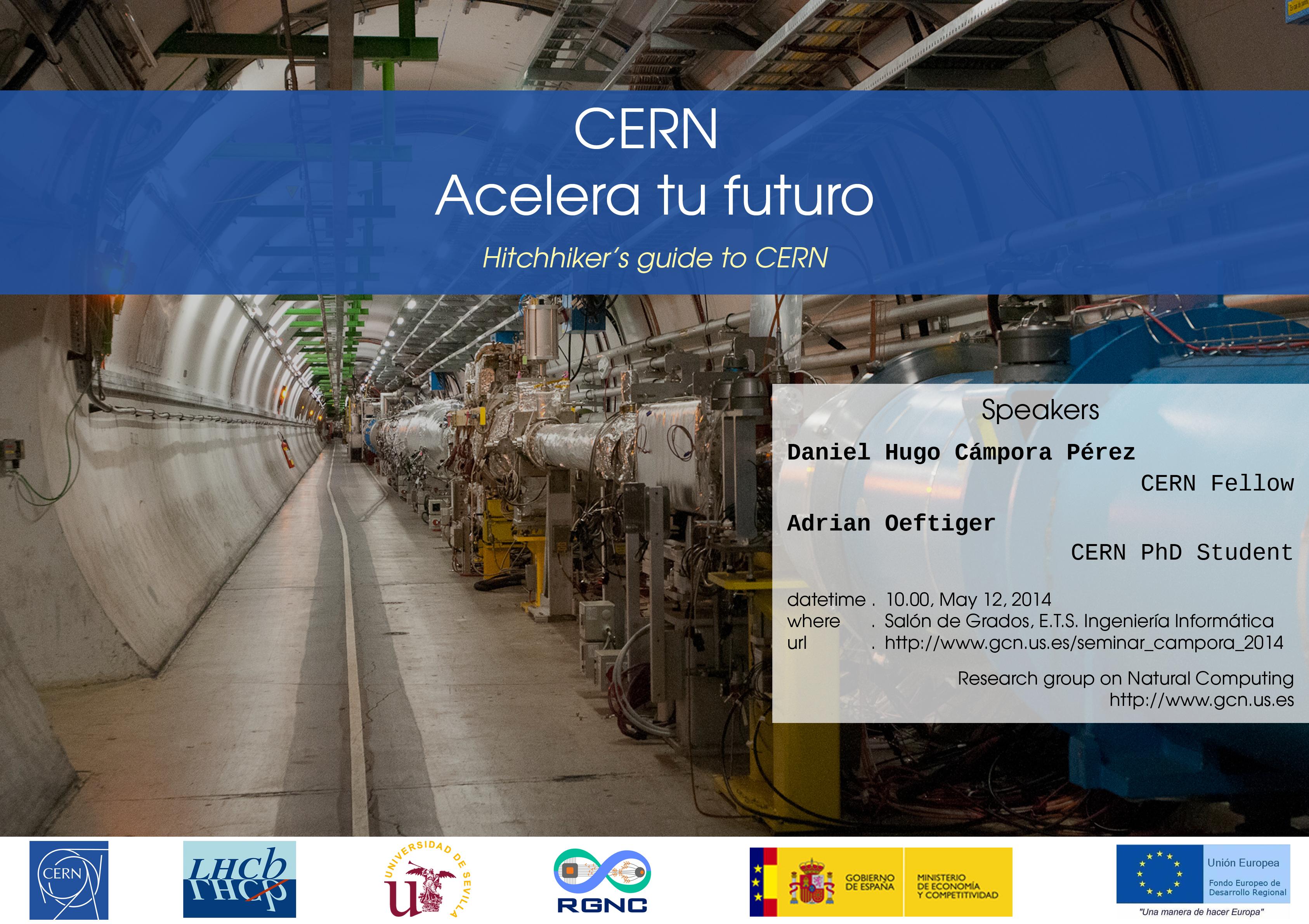Other events organized by the RGNC
The Research Group on Natural Computing has also organised several events related with science spreading and teaching. Some of them are highlighted below.
CONTENT
- Scientific Summer Campus
- Courses:
- Informative talks:
- Webinars IEEESBUS: Deep Learning
- NVIDIA CUDA Research Center: applications and opportunities
- CERN: Acelera tu futuro (Hitchhiker's guide to CERN)
Scientific Summer Campus
The Research Group on Natural Computing (RGNC) has organized several projects at the Higher Technical School of Computer Engineering as part of the annual issues of the programme Scientific Summer Campus at the Campus Andalucía TECH, initiated by FECYT and the Spanish Ministries of Education, Culture and Sport and of Economy and Competitiveness.
This programme is aimed at senior elementary school students and junior high school students, with the intent of promoting their interest in science, technology and innovation, thus providing a first-contact experience with research through their participation in scientific projects designed and directed by university lecturers in conjunction with high school teachers. This programme is co-founded by Charity "la Caixa". For more information: Spanish Ministry of Education.
The University of Seville takes part in the programme with four projects: Faculty of Mathematics, Faculty of Biology, Higher Technical School of Computer Engineering and Faculty of Physics.
Next, the three projects for the Summer Science Campus organized by the RGNC are listed (related links are provided in Spanish):
 Campus Científico de Verano 2018 |
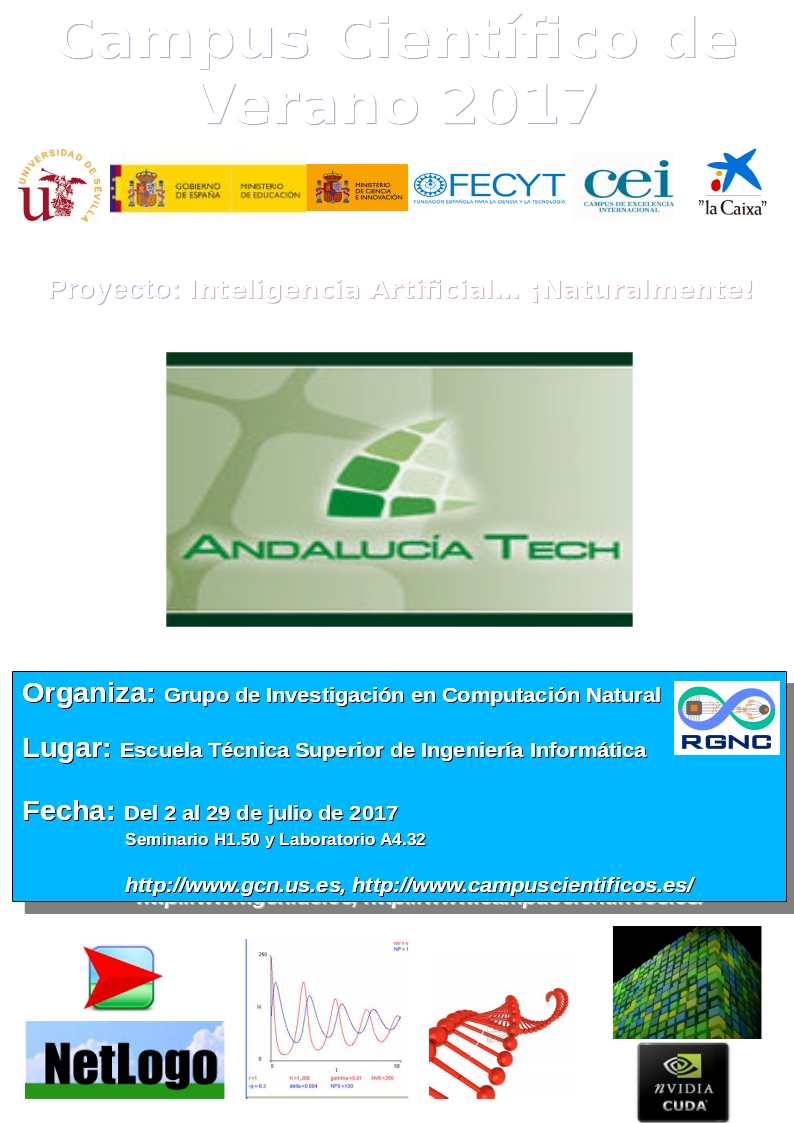 Campus Científico de Verano 2017 |
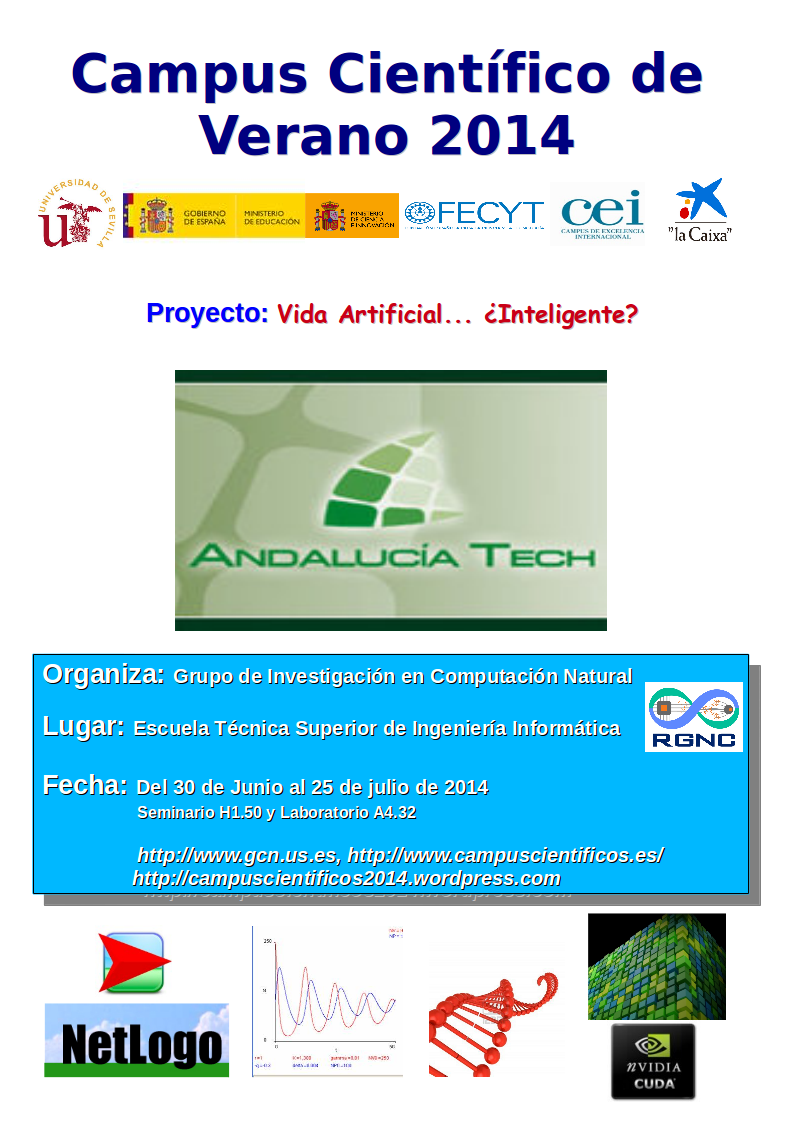 Campus Científico de Verano 2014 |
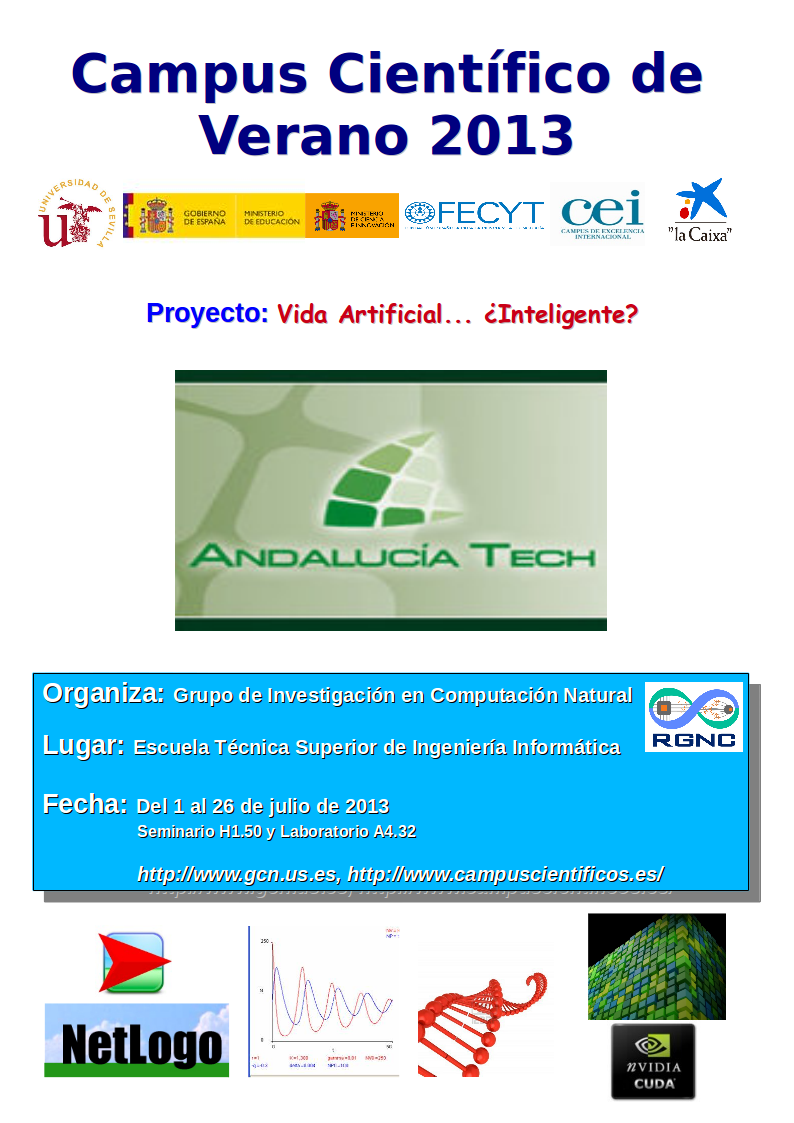 Campus Científico de Verano 2013 |
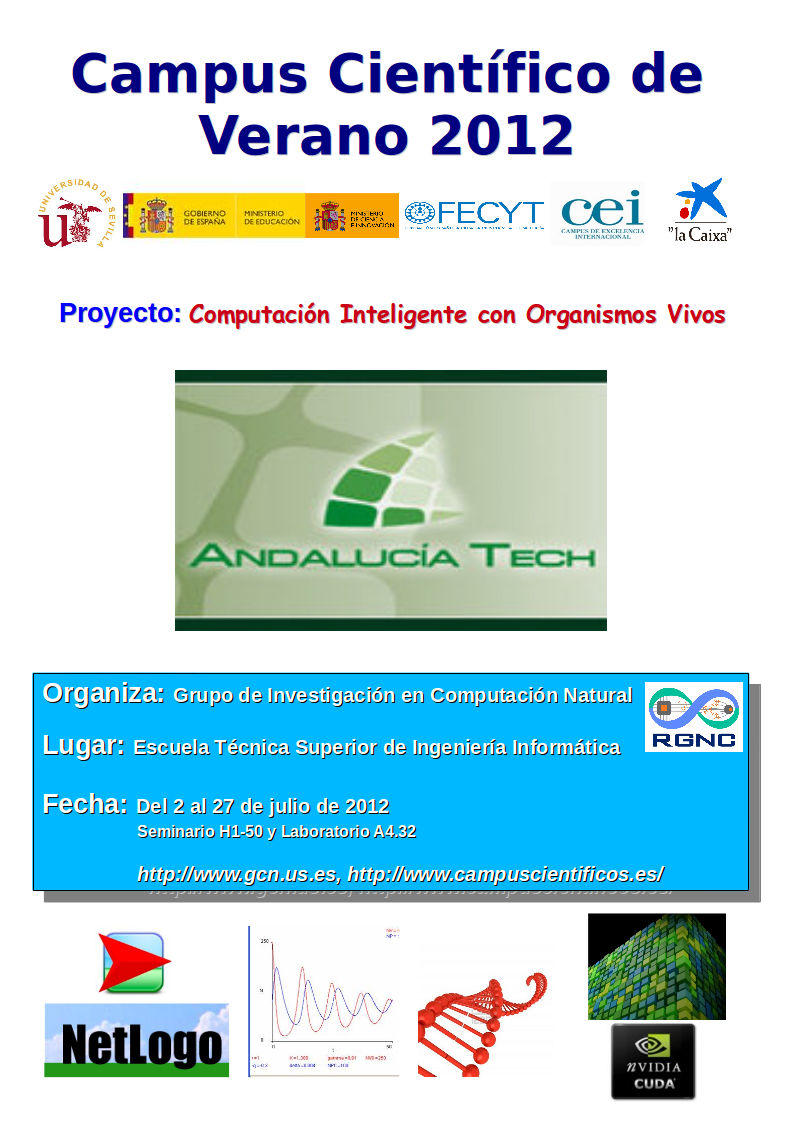 Campus Científico de Verano 2012 |
 Campus Científico de Verano 2011 |
COURSES
NVIDIA DLI Workshop: Fundamentals of Accelerated Computing with CUDA C/C++
"Fundamentals of Accelerated Computing with CUDA C/C++" is a Workshop of the NVIDIA Deep Learning Institute. Miguel A. Martínez-del-Amor, as NVIDIA DLI ambassador, taught this one-day workshop.
The CUDA computing platform enables the acceleration of CPU-only applications to run on the world’s fastest massively parallel GPUs. Experience C/C++ application acceleration by:
- Accelerating CPU-only applications to run their latent parallelism on GPUs
- Utilizing essential CUDA memory management techniques to optimize accelerated applications
- Exposing accelerated application potential for concurrency and exploiting it with CUDA streams
- Leveraging command line and visual profiling to guide and check your work
An official certification from the NVIDIA DLI is issued after completing the assessment. Editions:
- 22nd of May, 2019
- 8-10 June, 2020
A formal framework for processes inspired by the functioning of living cells: Natural Computing approach
Content of the course: Natural Computing is an interdisciplinary field of research that investigates human-designed computing inspired by nature as well as computation taking place in nature, i.e., it investigates models, computational techniques, and computational technologies inspired by nature as well as it investigates phenomena/processes taking place in nature in terms of information processing.
One of the research areas from the second strand of research is the computational nature of biochemical reactions. It is hoped that this line of research may contribute to a computational understanding of the functioning of the living cell, which is based on interactions between (a huge number of) individual reactions. These reactions are regulated, and the main regulation mechanisms are facilitation/acceleration and inhibition/retardation. The interactions between individual reactions take place through their influence on each other, and this influence happens through these two mechanisms.
In this course, professor Gr. Rozenberg presented a formal framework for the investigation of processes carried by biochemical reactions in living cells. He motivated this framework by explicitly stating a number of assumptions that hold for a great number of biochemical reactions, and we point out that these assumptions are very different from the ones underlying traditional models of computation. He discussed some basic properties of processes carried by biochemical reactions, and demonstrate how to capture and analyse, in our formal framework, some biochemistry related notions.
Besides providing a formal framework for reasoning about processes instigated by biochemical reactions, the models discussed in the course are novel and attractive from the models of computation point of view. This is extensively discussed throughout the course.
The course was of a tutorial style and self-contained, in particular no knowledge of biochemistry is required. It took place from 14/11/2011 to 18/11/2011.
Click here for more information.
INFORMATIVE TALKS
Webinars Deep Learning
In collaboration with the IEEE students branch at Universidad de Sevilla, Miguel A. Martínez gave two webinars during the Covid-19 lockdown, on an introduction to Deep Learning (in Spanish). The first session (10/04/20) was devoted to Machine Learning basic concepts and artificial neural networks. The second session (17/04/20) was focused on GPU computing, convolutional neural networks and transfer learning, basic concepts of Deep Learning. More information, here.

|
 |
NVIDIA CUDA Research Center: applications and opportunities
Con motivo de la reciente mención de CUDA Research Center (CRC) a la Universidad de Sevilla por la compañía americana NVIDIA Corp., el grupo de investigación en Computación Natural quiere organizar una sesión informativa con el fin de, por un lado, mostrar la investigación que se está desarrollando, y por otro, divulgar la tecnología CUDA dentro de la universidad.
CUDA es una tecnología de cómputo paralelo de NVIDIA que aprovecha la gran potencia de cálculo de la GPU (unidad de procesamiento gráfico) para acelerar notablemente el rendimiento de aplicaciones científicas. Se le suele denominar "Supercomputación personal", ya que ofrece mejoras considerables en el tiempo de ejecución: tiempos de semanas y días podrían pasar a minutos y horas empleando una simple tarjeta gráfica instalada en un ordenador de sobremesa.
Creemos que esta tecnología puede ser muy útil para acelerar el cálculo científico que involucra a la investigación que se lleva a cabo en nuestra universidad. Entre sus ventajas, cabe remarcar la alta potencia de cálculo que se ofrece por tarjeta (hasta 2800 núcleos en paralelo), su relativo bajo coste (la gama GeForce no sube de los 400€ por tarjeta), su alta gama de herramientas (basadas en diversos lenguajes, como C++ y Python) y librerías científicas (FFT, Deep Neural Networks, Visualization, Image processing, etc.) y por último, su fácil mantenimiento y bajo consumo eléctrico. Es por ello que queremos dar a conocer esta tecnología, remarcando qué se puede y qué no se puede hacer, y cómo llevarlo cabo.
It took place on 11-11-2014, at 11:30.
Click here for more information, and watching the video recording of the talk in youtube.
CERN: Acelera tu futuro (Hitchhiker's guide to CERN)
The European Organization for Nuclear Research (CERN), which celebrated its 60th anniversary in 2014, is a place where the first level research on areas such as particle physics and informatics takes place.
Daniel Cámpora and Adrian Oeftiger spoke about their experience at CERN, after staying there for 3 years, exploring the limits of technology and pursuing our knowledge about the universe. They also spoke about the selection process, and the steps that a student should take to get in this scientific community.
It took place on 12-05-2014, at 10:00.
Click here for more information.

